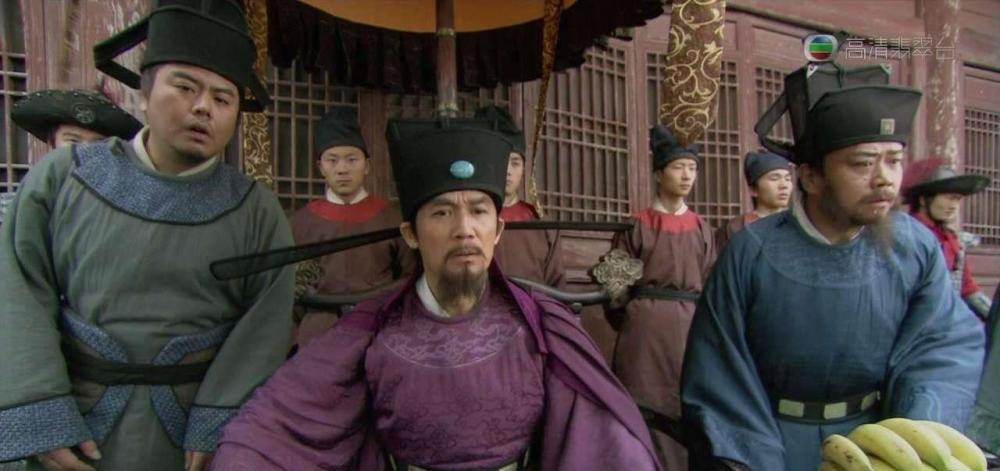Ancient China has a long history, although since the Qin Dynasty, the dynastic system is mostly similar, there are still many confusing officials and bureaucratic names, such as the Tang and Song Dynasties "Pingzhangshi" what is the position? And why was the ancient court called Dali Temple? In fact, the Pingzhang affairs of the Song Dynasty are actually equal to the chancellor, and the traitorous minister Qin Ju held this position, and the origin of Dali Temple is that it should be called "reason" by the judges who like to judge cases in the ancients, so the Han Jing Emperor, Han Xiandi and other emperors of the Han Dynasty have changed the name of the court lieutenant who judged the case to Dali several times, and the Northern Qi took the lead in changing the case handling agency of the court to Dali Temple, this is because there are many temples in Northern Qi, and the case handling agency happens to be in a temple room, so it is named, and the name is studied like this.

I believe that many people are curious, what kind of official position is the lieutenant? In fact, you may not believe it, there are many famous people who have held this official position in history, including Jia Xu and Sima Yi in the Three Kingdoms period, and Gao Li of the Song Dynasty. The name of Tai Wei can be first seen in the "Lü Shi Chunqiu" of the Qin State, as an official name, at that time also known as the National Lieutenant, in charge of the world's military power, in 260 BC, the commander Bai Qi was in charge of the military power in the name of the National Lieutenant, as the supreme commander of the Qin forces during the war. After Qin Shi Huang unified the six kingdoms, the national lieutenant was changed to a taiwei, and he was still the highest military commander in the country, just like the current minister of defense, who was in charge of government affairs and the imperial historian in charge of supervision.
Later, the Western Han Dynasty also inherited the system of the Qin State very well, but the power of the Tai Wei had a small change, after all, the emperor still did not want the ministers to have military power in their hands, and the position of tai wei was also revoked, if it was a war, it would re-activate the post of the tai wei and let him manage the troops, and the title of the lieutenant was idle on weekdays, just as the so-called "if there is something to put it, the matter is finished is to save", which is the truth.
In the Eastern Han Dynasty, because the power of the imperial court had been transferred to Shang Shutai, the official position of The Taiwei was already equal to that of the Chancellor, which was very different from the Taiwei of the Western Han Dynasty, and he was also the emperor's supreme military adviser, similar to the current Top Chief of Staff. However, whether it was the Western Han Dynasty or the Eastern Han Dynasty, there were some scruples about the actual power of the lieutenant, who could not directly command the surrounding troops, but needed to convey his instructions through the officers of the first rank.
When Zhou Bo of the Western Han Dynasty put down the rebellion against Zhu Lü, he could not command the central forbidden army of the general Lü Chan, and could only forge the emperor's order to enter the camp and gain command.
In the Song Dynasty, the power of the Lieutenant was further strengthened, because the Song Dynasty, as a dynasty that emphasized literature and light weapons, collected the world's soldiers and horses in the capital after the Song Taizu Zhao Kuangyin released his military power, and the Lieutenant was also able to directly control the most elite troops of the Song Dynasty, so the rights of Gao Li and others were actually very large.
During the Southern Song Dynasty, Yue Fei was honored as a lieutenant. Having already commanded 70% of the country's soldiers and horses, he became the commander of the highest power in the Southern Song Dynasty besides the emperor at that time, so why was Yue Fei still killed by Qin Juniper? Logically speaking, even if Qin Ju had ten guts, he did not dare to murder the imperial court officials without authorization, and behind him was naturally the meaning of Emperor Gaozong of Song, after all, Yue Fei, who had repeatedly written to "welcome the Second Saint back to Beijing", had already had a great impact on his royal power, but the crime of killing Yue Fei could only be carried by Qin Juniper.